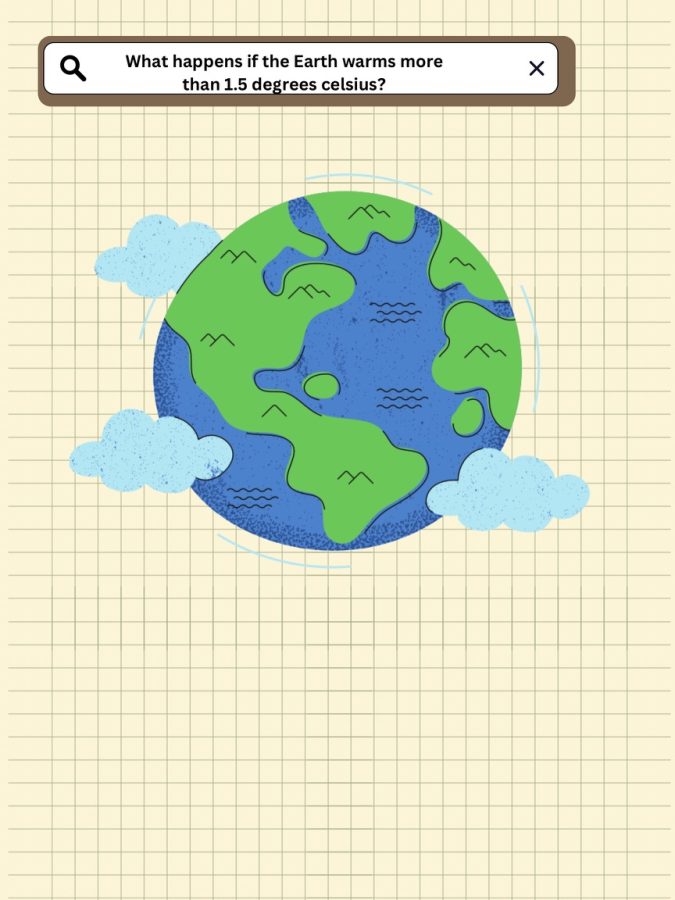In the aftermath of the Big Bang, the planet Earthwas formed around 4.5 billion years ago. Throughout the years, shifting tectonic plates, erosion and volcanic activity have all altered the planet’s geologic makeup.
While the change created by natural occurrences caused proportionately less harm, humans, for the last decade, have participated in greatly deteriorating the state of the planet with the release of greenhouse gasses and carbon emissions, bringing forth the issue of climate change.
Defined as the long term alteration to the planet’s weather, the phenomenon is predicted to negatively impact every aspect of the biological atmosphere.
The recognition of climate change as a prominent issue has risen since the 1970s but its discovery dates back to the 1800s. In 1958, geochemist Charles Keeling saw a sharp incline in the CO2 levels and by 1960, an advanced computer model had predicted an advance in temperature by two degrees within the next century. Although the one digit number does not seem daunting, it opens doors for many threats.
To combat these issues, the Paris Agreement, designed to hold nations accountable for holding global warming to 1.5 degrees Celsius, was signed. The Intergovernmental Panel on Climate Change recently released a report stating that the threshold would be crossed by mid 2030s, as the earth has already warmed an average of 1.1 degrees Celsius. The report makes a strong suggestion for nations to reduce the use of greenhouse gasses by fifty percent and to stop the addition of greenhouse gasses into the air until 2050. The impact of climate change is widespread, affecting integral parts of the ecosystem; seemingly minor changes in the temperature offsets large ripples stretching from the land to seas.
Failure to achieve those goals points to a bleak future for humanity. Senior Olivia Rogers who makes an active effort to be environmentally conscious shares,”Everyone should be investing time into our future. Without this planet we don’t have a home”.
As global temperatures rise, so does the intensity and frequency of natural disasters. Tsunamis, earthquakes and droughts continue to devastate regions across the world acting as the catastrophic aftermath.
Due to record high temperature levels in the summer, heat waves have become the leading cause of seasonal-related deaths. Western America is currently experiencing the longest dry period in its history because of a “megadrought,” resulting in lower amounts of drinking water supplies. Additionally, the number of wildfires have doubled, leading to the decrease of O2 emissions.
Adverse effects of this phenomenon can be most directly seen in the Arctic. As glaciers and polar ice sheets melt, polar bears are facing an alarming reality of extinction. Marine life that are sensitive to temperature have also changed migration patterns, disturbing the food chain of other creatures. Entangled in the ever worsening climate crisis, the entire oceanic biome clings to uphold its balance.
Agriculture landscapes face a similar circumstance as fatal pathogens and diseases are appearing at a rapid pace. In areas where severe heat and precipitation patterns are recurring, the health of soil takes a toll. Crops have become more difficult to grow, resulting in a loss of livestock and food shortages. “The thought of living in a world with a scarcity of food is frightening. It is an important source of energy for all. The fact that despite being aware of this news people still do not take action is disheartening” shares senior Caity Burke.
Climate change activists and the United Nations have offered a wide array of strategies to put an end to the harmful effects of climate change. It is imperative that these strategies are implemented to prevent an even more catastrophic future.







